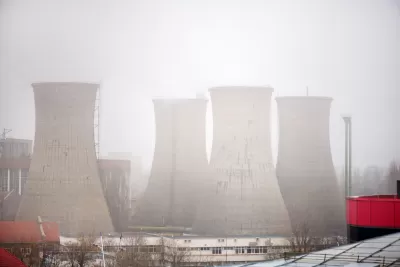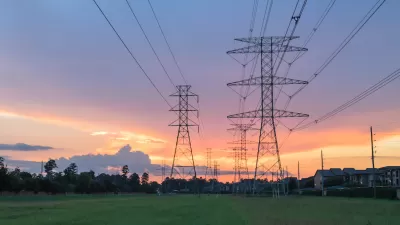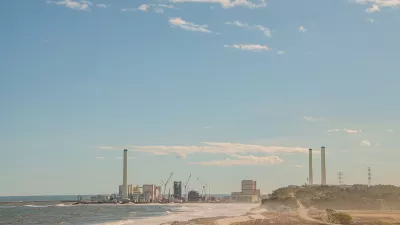“It has to be one of the greatest wastes of money in any state’s history,” Alan Greenblatt writes.

In the first line of his piece on failed nuclear plants in South Carolina, Alan Greenblatt speculates, “It has to be one of the greatest wastes of money in any state’s history.”
The story begins 12 years ago:
“Back in 2006, South Carolina, along with several other states, passed legislation to try to jumpstart the moribund nuclear construction industry. At the time, energy was more expensive than it is today and there was talk of Congress perhaps imposing a carbon tax. In states with growing populations, encouraging nuclear energy through a new approach seemed like a good idea.”
What also seemed like a good idea was a financing strategy that had utility customers paying for the plants as they were built, instead of being presented with a bill once they were finished.
Which is how those customers have paid $2 billion into projects that will never generate electricity; in fact, even though work has ceased, and the company contracted to build the plants went bankrupt last summer, and an audit uncovered faulty designs and poor management, South Carolinians are still paying $37 million per month to South Carolina Gas & Electric and Santee Cooper.
“The state is now trying to figure out who’s to blame, and who will pay,” Greenblatt writes, noting that it’s unlikely the utility companies could refund ratepayers even if the state demanded it, that they both claim they can’t continue to operate if the payments cease.
FULL STORY: South Carolina Spent $9 Billion on Nuclear Reactors That Will Never Run. Now What?

Trump Administration Could Effectively End Housing Voucher Program
Federal officials are eyeing major cuts to the Section 8 program that helps millions of low-income households pay rent.

Planetizen Federal Action Tracker
A weekly monitor of how Trump’s orders and actions are impacting planners and planning in America.

Ken Jennings Launches Transit Web Series
The Jeopardy champ wants you to ride public transit.

Tackling Soil Contamination With Nature-Based Solutions
Los Angeles County residents and experts are turning to nature-based methods like bioremediation to address long-standing and fire-exacerbated soil contamination without resorting to costly and disruptive removal.

Rebuilding Smarter: How LA County Is Guiding Fire-Ravaged Communities Toward Resilience
Los Angeles County is leading a coordinated effort to help fire-impacted communities rebuild with resilience by providing recovery resources, promoting fire-wise design, and aligning reconstruction with broader sustainability and climate goals.

When Borders Blur: Regional Collaboration in Action
As regional challenges outgrow city boundaries, “When Borders Blur” explores how cross-jurisdictional collaboration can drive smarter, more resilient urban planning, sharing real-world lessons from thriving partnerships across North America.
Urban Design for Planners 1: Software Tools
This six-course series explores essential urban design concepts using open source software and equips planners with the tools they need to participate fully in the urban design process.
Planning for Universal Design
Learn the tools for implementing Universal Design in planning regulations.
Ada County Highway District
Clanton & Associates, Inc.
Jessamine County Fiscal Court
Institute for Housing and Urban Development Studies (IHS)
City of Grandview
Harvard GSD Executive Education
Toledo-Lucas County Plan Commissions
Salt Lake City
NYU Wagner Graduate School of Public Service





























